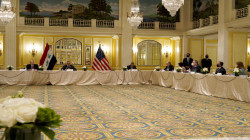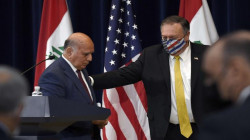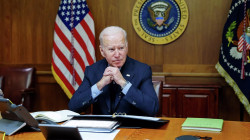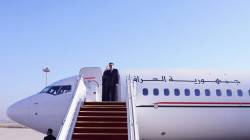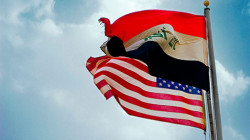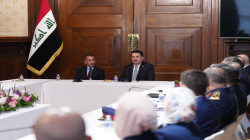Iraq’s prime minister will toe a fine line in Washington visit
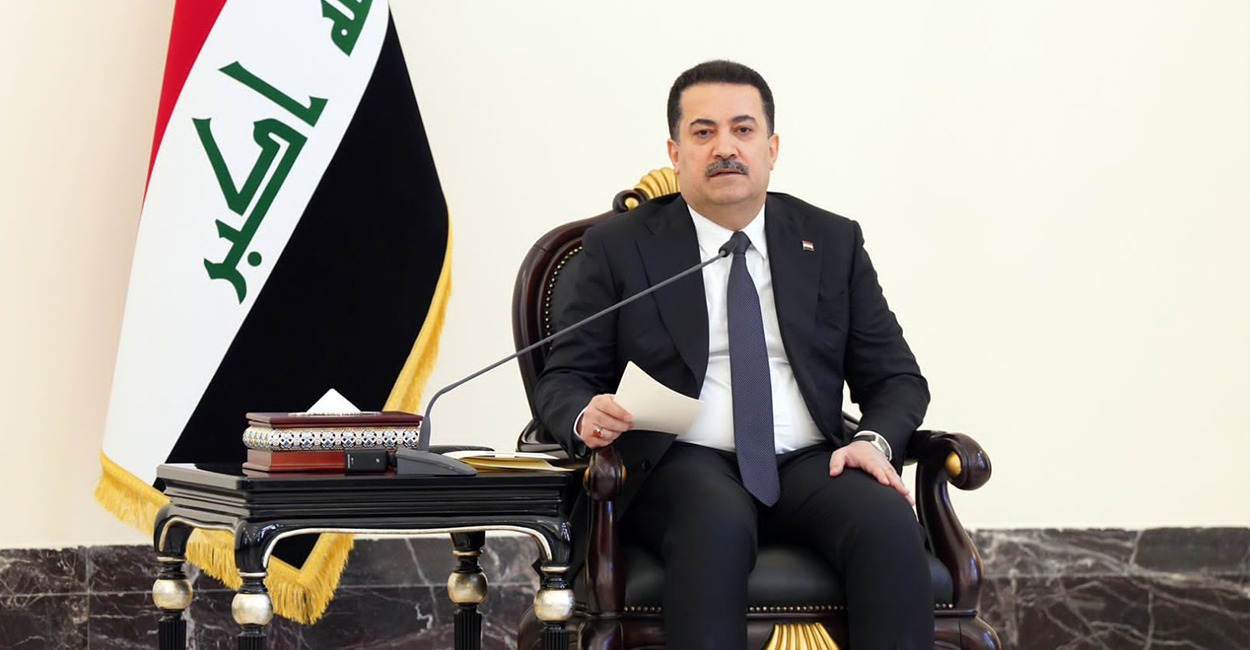
Shafaq News/ Iraqi Prime Minister Mohammed Shia al-Sudani is set to meet US President Joe Biden in Washington on April 15, in a visit that has been planned for a long time. The two men are meeting less than two days after Iran launched a direct attack on Israel involving more than 300 drones and missiles, and unprecedently originating from its own soil. Some of these flew over Iraqi airspace on the evening of April 13 en route to Israel.
Following months of careful preparation by Baghdad and Washington, in an effort to shore up their relations in the aftermath of the Gaza war, the Iran attack will likely suck all the air out of the room on Monday.
For decades, unwritten rules of engagement between the two Middle East powers were designed to spare the region such a confrontation. Since the deadly US drone strike on Islamic Revolutionary Guard Corps Quds Force Commander Qassim Soleimani in Baghdad in early 2020, Iraq has emerged as an arena for Tehran to directly settle scores with Washington and its local allies.
The enormous challenge for Sudani and Biden will be finding a way to restrain Iranian-backed Iraqi militias should Israel decide to make good on its threat of an unprecedented retaliation of its own against Iran. If this were to include Tehran’s proxies in the region, then Israeli airstrikes on Iraq would no longer be a remote possibility.
Iran’s retaliation, in response to a suspected Israeli airstrike on its Damascus consulate earlier this month, complicates the prospects for bringing the devastating war in Gaza to an end — a conflict that saw Iraqi militias target US interests, not only at home but also in neighboring Syria and Jordan as part of a broader “Axis of Resistance” response to US support for Israel.
The episode has marked an ebb in Iraqi-US relations; and in managing the fallout, Sudani has sought to balance, on the one hand, maintaining the bilateral relationship and, on the other, preserving the political backing his cabinet needs from pro-Iran factions within the ruling Shi’a Coordination Framework (SCF) — a bloc he owes his premiership to.
Prior to the ramp up of region-wide hostilities, Washington and the new SCF-led government in Baghdad, formed a year after the October 2021 parliamentary elections, engaged pragmatically despite continued US concerns about Iranian influence over the bloc.
Recurring militia attacks, which even targeted the US embassy in Baghdad, saw Washington retaliate multiple times by striking militia sites and leaders throughout the country, even in the Iraqi capital itself. The US also imposed sanctions on individuals and entities, including banks that it associates with the militias and their political wings, and tightened measures limiting the flow of US dollars into Iraq’s financial system to deter suspected smuggling to Iran.
US troop withdrawal
Sudani attempted, to no avail, to restore the previous detente, but the salvos of attacks and retaliations cornered the Iraqi government; it could neither stop attacks on US interests, including those on diplomatic facilities, nor prevent foreign powers’ strikes on Iraqi soil, which domestic political actors publicly condemned as a violation of Iraq’s sovereignty.
In an April 11 article for Foreign Affairs, Sudani admits that, “My government is aware of its sensitive position and the delicate balance that it must maintain between the United States and groups that sometimes enter into direct conflict with American forces.”
The prime minister argues that with time, weapons outside the control of the state will eventually disappear, adding that, “The decision to make war and peace must be an exclusive matter for the state, and no other party can claim this right.”
In the run-up to the US visit, the militias agreed to suspend their attacks; but this pause remains untenable. The Pentagon said on April 13 that some of the drones and missiles fired on Israel originated from Iraq, but thus far there have been no reports of Iraqi militia attacks on US facilities in the country. Undoubtedly, however, Iran’s direct engagement with Israel will only embolden its proxies and increase their political clout locally in the long run.
A central demand by hardliners and the militias is for the prime minister to secure a hard date from Biden for the withdrawal of US troops from Iraq. Sudani is unlikely to deliver on such a withdrawal, but the optics of a continued “conversation” on a timeline for a future pullout would indeed help him politically.
With US presidential elections looming in November, and Washington’s attention fixed on restraining a counterattack by Israel, Biden’s main expectation from Sudani is that Iraq should not emerge as a headache for the administration, forcing, yet again, military action. Biden will not give Sudani a hard promise, as his Republican opponents would likely deem this a concession to Iran. But perhaps he might be able to promise a reduction in troop numbers after his re-election.
For its part, Baghdad needs to assess how a full withdrawal would impact its military capabilities and business with US weapons manufacturers. Iraq still requires training, maintenance, and intelligence-sharing with the US. The latter, especially, constitutes a win-win for both sides in their cooperation to ensure there is no resurgence by the terrorist group Islamic State.
For Washington, a lasting defeat of the Islamic State remains the official objective for its roughly 2,500 US “advisors” in Iraq. This presence also implicitly acts as a deterrent against the militias, and as seen in the Western-led interception of Iran’s missile and drone barrage on April 13 is now part of a regional line of defense of Israel. These aspects of the US military presence in the country will ultimately dominate Washington’s decision-making, while intensifying pressure on the Sudani government to seek a full withdrawal. (Middle East Institute)
